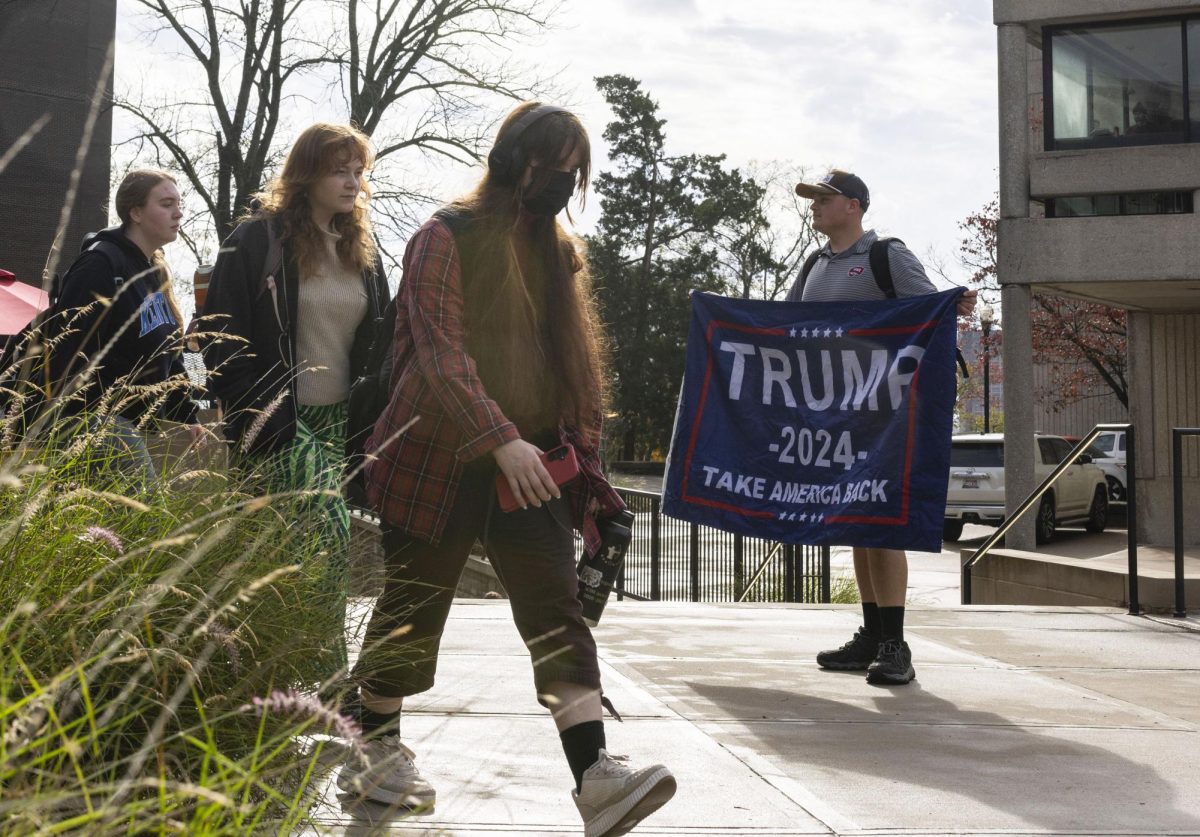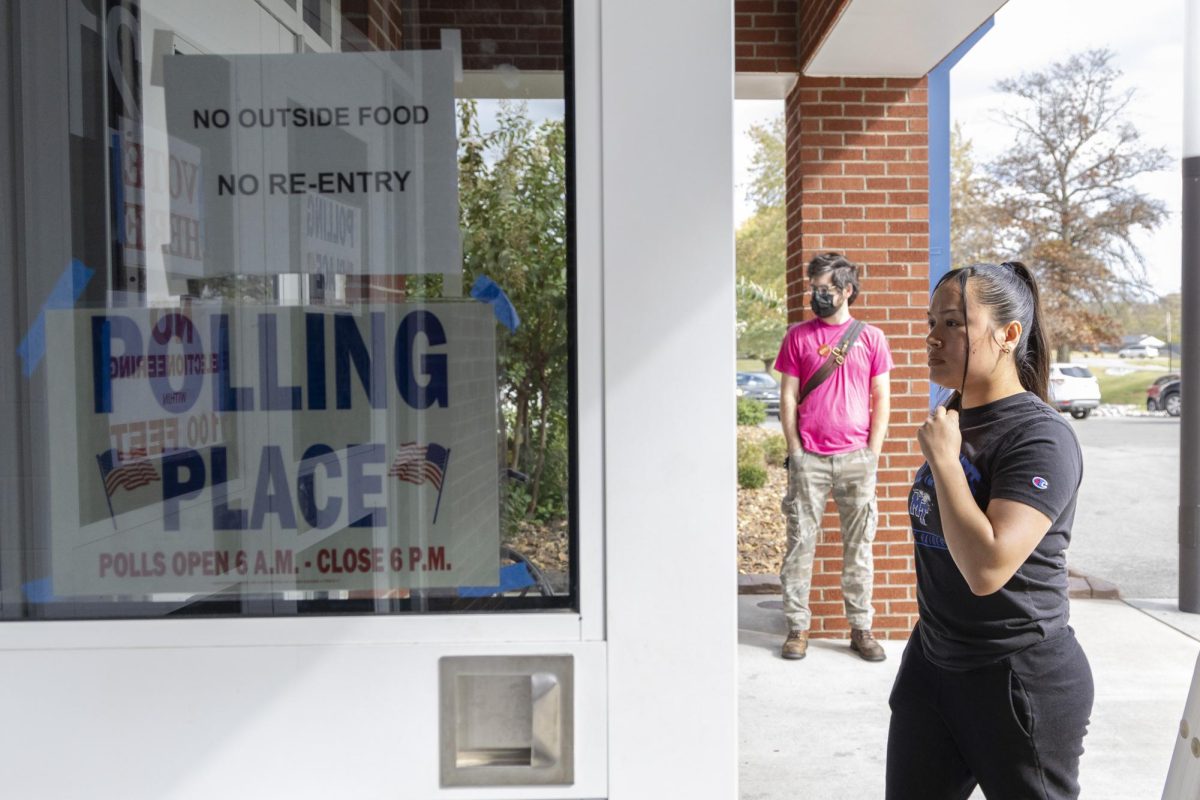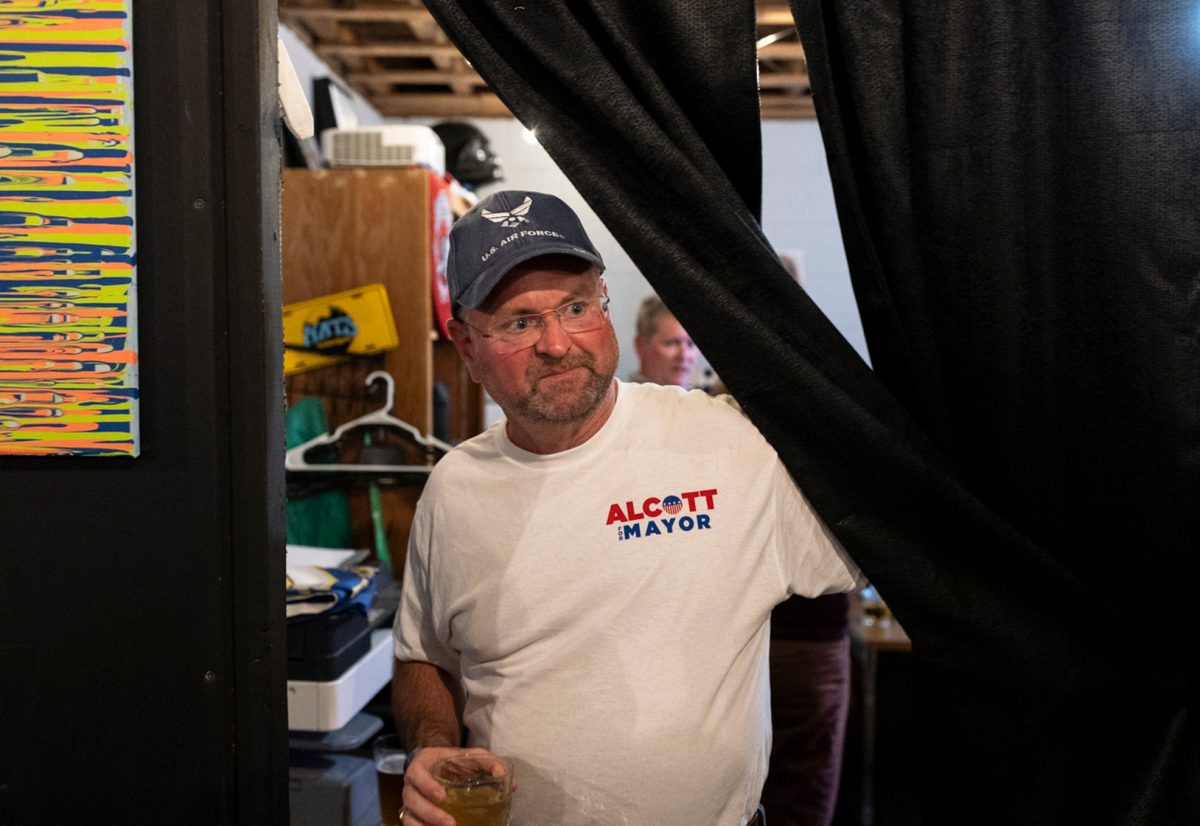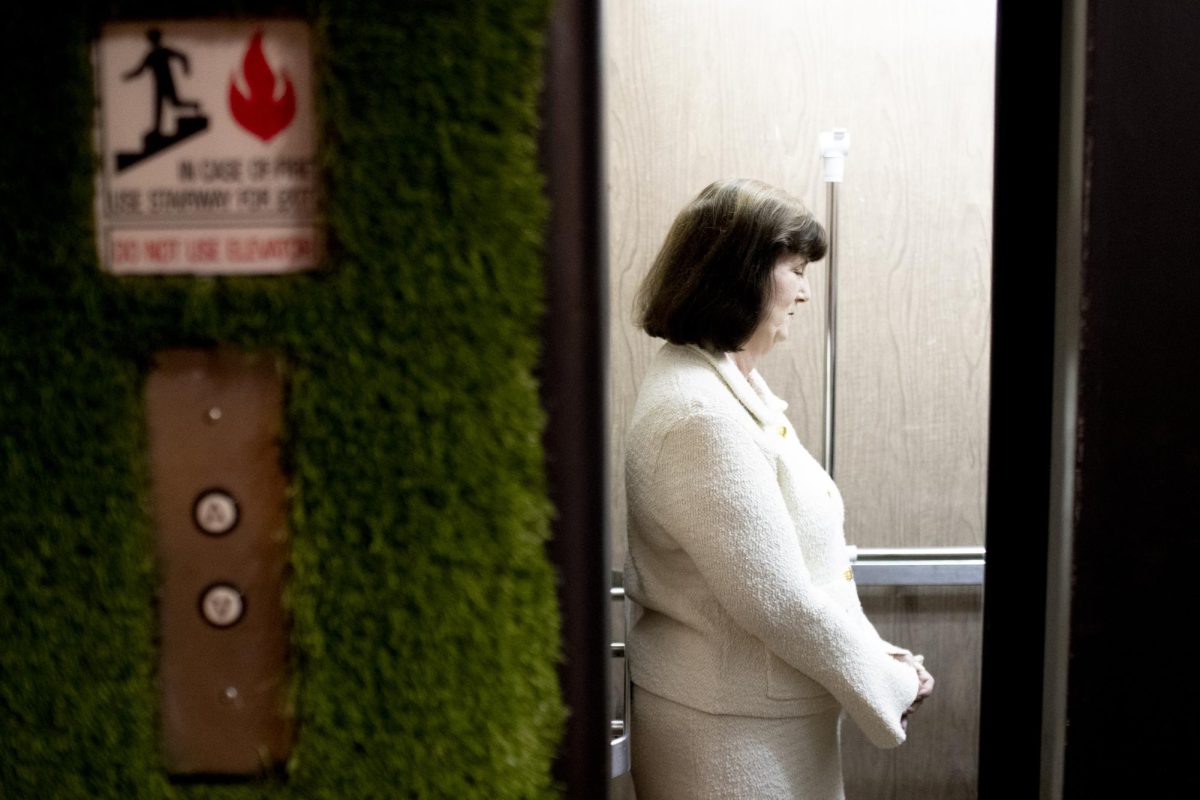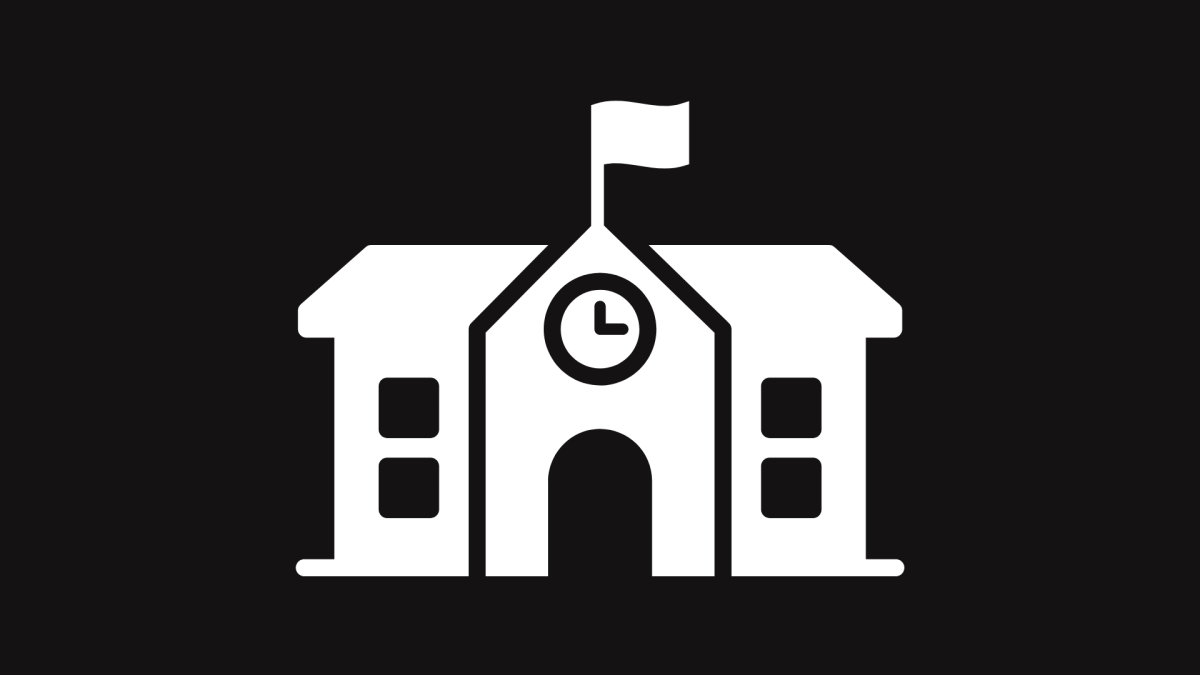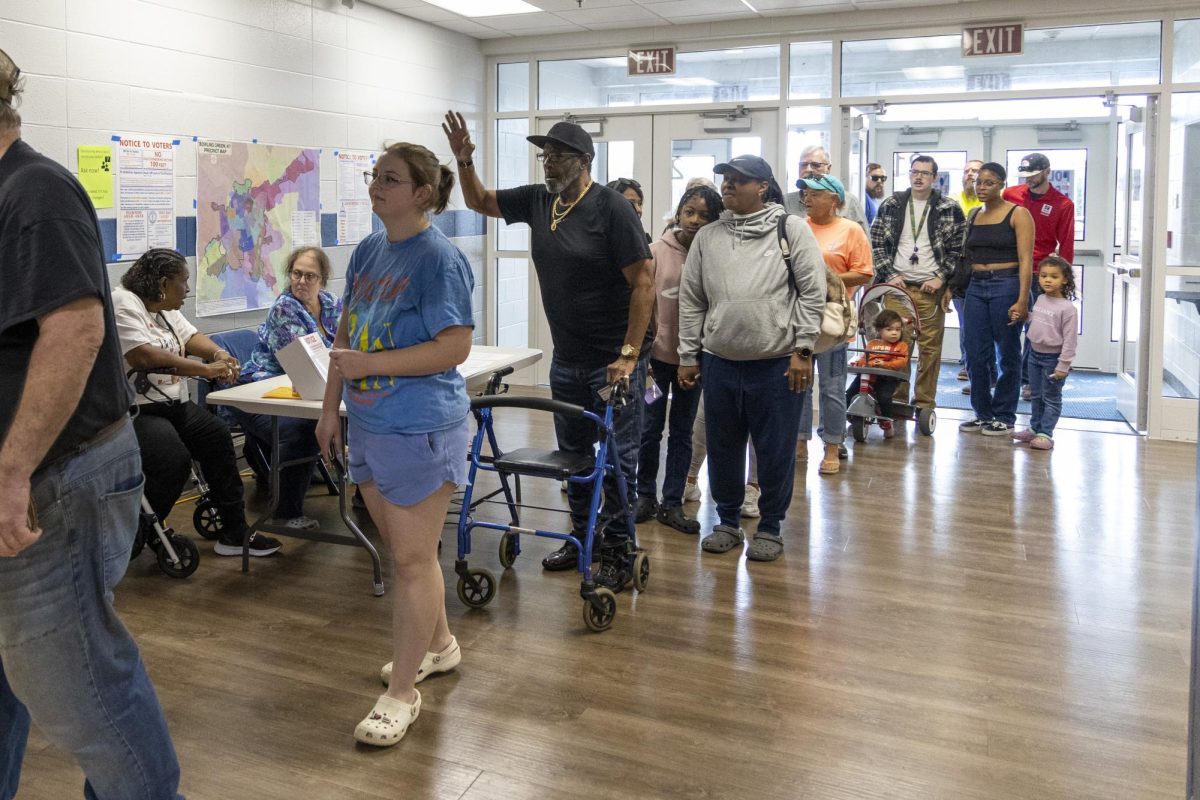Candidates for Bowling Green mayor, incumbent Mayor Todd Alcott and WKU History Professor Patti Minter met face-to-face Monday, Oct. 21 for a public forum hosted by the city’s chapter of the NAACP.
After the mayoral forum, the organization also hosted city commissioner candidates Melinda Hill, Carlos Bailey, Johnalma Barnett and Dana Beasley-Brown for a public forum. Current City Commissioner Sue Parragin and candidate John S. Williams declined the NAACP’s invitation to attend.
President of the Bowling Green NAACP and WKU Broadcasting Professor, Ryan Dearbone, was the head organizer of the event. Dearbone said that the forum is important because “Everybody needs to know where the candidates stand.”
“As part of our mission as the NAACP is to make sure that people hear from the candidates, that they know when they go to the ballot box who they’re voting for and what policies they’re voting for,” Dearbone said.
According to Dearbone, the NAACP has been active in fighting for equal rights in Bowling Green for over 105 years.
Specifically, as that applies to public forums, Dearbone said “…especially in this area, in the Shake Rag district where candidates may or may not always be seen and minorities and underrepresented (people) may not always get a chance to connect with candidates.”
Alcott and Minter went back and forth on topics of city development and government transparency.
Alcott explained that when he took office the Bowling Green Police Department, BGPD, had 24 vacant positions, which was not conducive to a rapidly growing city. Alcott also said he has worked to grow and improve the department.
“We actually have their pay up to 63,000 (dollars) with benefits,” Alcott said. “We were able to fill those 24 positions, and were able to add 16 more police positions.”
Alcott also said that under his mayorship the city has recently built two baby boxes. Baby boxes are installations often put on the sides of fire stations and hospitals that allow for the anonymous surrender of newborns. Alcott said the new baby boxes have saved two lives.
Minter expressed her support of Alcott’s work to install baby boxes to increase public safety before pointing to her work in the Kentucky House of Representatives, where she worked to increase the pay of Kentucky State Police troopers and allow mental health leave.
“I want to make it clear that I’m very excited that we have those baby boxes here in Bowling Green because I was on the committee that passed that bill and we worked actually with our then fire chief,” Minter said.
Alcott said in 2020, he worked on doubling the size of the Transpark, a development drawing new business and industry to Bowling Green.
“Between the city and the county, we invested about $22 million each and since that day, we were the number one economy in the nation for under 200,000 (in population),” Alcott said.
In responding to the same question, Minter emphasized the importance of better public transportation options in Bowling Green for workers
“I would point out that one of the things we need to do to make sure that people have access to these good jobs is we need to have good public transportation,” Minter said.
When asked about government transparency, Alcott pointed to the current 24 city advisory boards, which oversee the various organizations and initiatives in Bowling Green
“Whether it’s planning and zoning, whether it’s for the airport board, or whether it’s for our library, which is from the county, or whether it’s for our community at large,” Alcott said.
“It’s critical that we have a community that’s part(ly) driven by our citizens for all boards,” Alcott said.
Minter said that the city government has become a “closed system” and needs to be more accessible to people.
An issue Minter said she has with the current system is that public discussion has been moved to the end of meetings after votes have already taken place.
“One of my first acts will be to bring public comment back to the beginning of the meeting because you shouldn’t vote then listen to what the people have to say about it,” Minter said.
Once the mayoral forum concluded, individuals running for a seat on the Bowling Green City Commission participated in a second forum focused on diversity, housing, community and small businesses. Current commissioner Hill joined the forum late due to a previous commitment.
When asked if they would vote in support or against a fairness ordinance Hill was the only candidate who said she would vote against it. A fairness ordinance, currently being promoted by Minter, would add protections regarding sexual orientation and gender identity to Bowling Green’s current civil rights laws.
“I think we currently do not have any issues regarding that in our community,” Hill said. “I do not think city government should take on social issues.”
Beasley-Brown refuted Hill’s statement, voicing her support for the proposed ordinance.
“I hear stories of how they (members of the LGBTQ+ community) are spit on in grocery stores, they are screamed at whenever they’re just trying to walk their dog, they are threatened with violence,” Beasley-Brown said.
Commissioner Bailey said he would vote in favor of a fairness ordinance and likened the current issue to the Civil Rights Movement of the 1960s.
He said that while Black Americans constitutionally had the same rights as white Americans dating back to the 1800s, “…you had to have a whole other Civil Rights Act just to basically make sure what was already in the constitution.”
Also in support of a fairness ordinance, Barnett said, “As a woman of color, I’ve seen discrimination. I will never be a part of any type of discrimination. So yes, I will vote for it right away.”
Candidates also discussed issues surrounding landlords and renting in Bowling Green. Beasley-Brown, Bailey and Barnett all spoke in agreement on the implantation of the Uniform Residential Landlord-Tenant Act, a law that provides protection to both renter and landlords.
Hill was not yet present during the conversation on the Uniform Residential Landlord-Tenant Act, however, she said she is a “proponent of landlords.”
Hill continued, saying that landlords have a responsibility to take care of renters and renters have a responsibility to respect their landlords.
“They (landlords) need rights, but they also need to take care of the people that are renting from them,” Hill said.
Barnett agreed with Hill’s statement saying, “They (landlords) should be protected because they are a small business.”
Beasley-Brown said that the average rent in Bowling Green is $1,000 a month and said that Bowling Green needs to have some legal intervention for the quality of housing one is owed at $1,000 a month.
“There’s no other area of businesses in Bowling Green that we would find that acceptable,” Beasley-Brown said.
Bailey highlighted issues between businesses renting property from landlords, saying that landlords have an obligation to keep their properties well-managed so businesses can operate smoothly.
“It just makes good business sense if they’re basically being good landlords,” Bailey said.
Candidates discussed the need for strong and diverse small businesses. Bailey said he has worked on a “business incubator” while in office. Sitting city commissioners said the business incubator is a facility that will help small businesses acquire the resources necessary to open and stay in business.
“We partner with the housing authority to basically create business ownerships for low-income people, all races, for minorities and for women,” Bailey said.
Beasley-Brown also said she was proud to have worked on the business incubator. However, she said that there is still work that will need to be done working with language barriers and applying for loans.
Barnett said the city government needs to do a better job at forming diverse committees in order to be more welcoming to businesses.
Finally, candidates discussed how to better help and preserve minority communities.
Barnett expressed issues with the Medical Center buying property in Bowling Green’s Shake Rag Historic District. She also said the city government needs to crack down on the selling of houses in order to build apartment complexes.
Bailey and Beasley-Brown talked about a plan to set up Shake Rag and other Bowling Green communities as overlay districts.
“There is a group of just ordinary citizens who approve every new development that goes in there to make sure that it adheres to the quality standards that that overlay district has put in place for that area,” Beasley-Brown said.
The Lovers Lane area is established as an overlay district, meaning any developments must be approved by a committee of community members.
Bailey and Beasley-Brown said they believe more overlay districts would preserve the minority communities of Bowling Green.
News Reporter Anthony Clauson can be reached at anthony.clauson994@topper.wku.edu.









